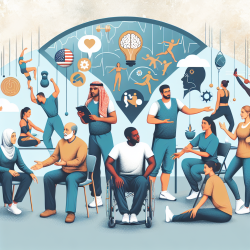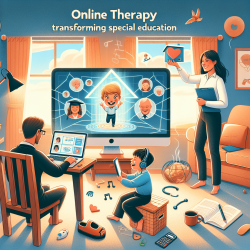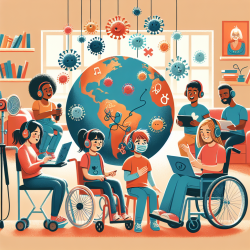Introduction
In the realm of rehabilitation for acquired brain injury (ABI), the integration of peer support has emerged as a promising strategy to enhance patient outcomes. A recent study conducted in the Netherlands, titled "Patient characteristics related to the need for peer support in rehabilitation after acquired brain injury: a prospective cohort study," sheds light on how specific patient characteristics influence the need for and perceived value of peer support during rehabilitation. This blog explores these findings and discusses how practitioners can leverage this information to improve rehabilitation strategies.
The Study at a Glance
The study followed 120 patients with ABI during their inpatient rehabilitation in the Netherlands. It aimed to identify patient characteristics that determine the need for peer support and whether the support was perceived as meaningful. The findings revealed that 73% of patients expressed a need for peer support, and 76.6% found the contact meaningful by discharge.
Key Findings
- Demographic Influence: Non-Western and single patients showed a higher need for peer support, highlighting the role of cultural and social factors in rehabilitation.
- Age and Timing: Patients under 60 and those with a rehabilitation duration of more than three months found peer support more meaningful, suggesting that younger patients and those with prolonged recovery periods benefit more from peer interactions.
- Mutual Recognition: The sense of mutual recognition and understanding was a significant factor in the perceived meaningfulness of peer support.
Implications for Practitioners
For practitioners, these insights can be instrumental in tailoring rehabilitation programs. Here are some actionable steps:
- Identify Patient Needs: Assess the social and cultural backgrounds of patients to identify those who might benefit more from peer support.
- Facilitate Peer Matching: Ensure that peer supporters share similar characteristics with patients, such as age and cultural background, to enhance the effectiveness of the support.
- Optimize Timing and Dosage: Consider the timing and frequency of peer support sessions, especially for younger patients and those with longer rehabilitation durations.
Encouraging Further Research
While the study provides valuable insights, it also highlights areas for further research. Future studies could explore the optimal dosage and structure of peer support, as well as its impact on coping mechanisms, self-efficacy, and quality of life. Such research could refine peer support interventions and contribute to evidence-based practices in rehabilitation.
Conclusion
The integration of peer support in rehabilitation programs for ABI patients holds significant potential for improving outcomes. By understanding and applying the findings from this study, practitioners can enhance the rehabilitation experience and effectiveness for their patients. For those interested in delving deeper into the study, the original research paper is available for further reading.
To read the original research paper, please follow this link: Patient characteristics related to the need for peer support in rehabilitation after acquired brain injury: a prospective cohort study in the Netherlands.










